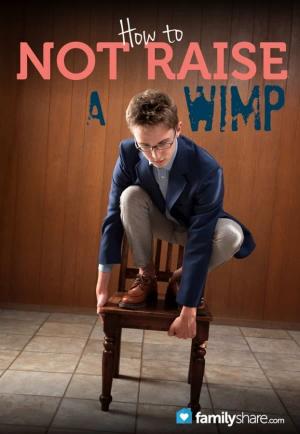
There is a distinct rise in mental health issues in college-aged adults and much of it is being attributed to the insulated childhoods we are providing for them. We do it out of love and concern, but taking away risk and pain may be misguided.
The decline in the inability to cope with some of life's lessons that these young adults are experiencing coincides with the age of insulation that we have been thoughtlessly encouraged to live. Hand sanitizer, helmets, co-playing, over-scheduling, and everyone-gets-a-trophy-ing is leading to a rise in ... wimps.
Behold the wholly sanitized childhood, without skinned knees or the occasional C in history. "Kids need to feel badly sometimes," says child psychologist David Elkind, professor at Tufts University. "We learn through experience and we learn through bad experiences. Through failure we learn how to cope."
We, as parents, often try to eradicate pain and failure from their childhoods, but by so doing, we are also wiping out their development of coping skills.
"Life is planned out for us," says Elise Kramer, a Cornell University junior. "But we don't know what to want." As Elkind puts it, "Parents and schools are no longer geared toward child development, they're geared to academic achievement."
So how can we stop depriving our children of this essential part of childhood?
Let them play
When you take children to the park, don't rush in to be a part of their play. Don't guide them in their play. Let them figure things out and use their imagination.
Let them get hurt
Pain teaches us to cope with pain and we all know that for the most part, the older we get, the more pain we'll be called on to endure. How can we know how to get through something we've never experienced? There are certain places we must protect them: good car seats are a must; don't let them play in the street or with fire. But skinned knees and stitches are part of childhood.
Let them lose
Don't throw a board game to make them happy. In the long run, they need to know how to handle loss with the strength that develops in losing in childhood. When they are in team sports, they don't need to get a trophy for being part of the team. Children don't need the pressure of always having to win. They need to know how to lose.
Let them get dirty
More and more we are reading about the adverse effects of over sanitization. Simply put, children can't develop healthy immune systems if they are never exposed to germs. Let them play in the mud.
Let them do their own homework
I was shocked to read that there is a rise in parents actually calling colleges to protest their adult children's bad grades. What? Don't write their reports. Don't do their research. Encourage them, but don't do it for them. Your job is to provide the best possible environment in which to study and maybe provide an occasional snack. Leave it at that. If they fail, they learn to do better.
Let them fight some of their own battles
You don't have to take every opportunity to jump in and defend or protect them. If kids get together and squabble, let them squabble. Unless it gets to the point where they are physically in danger, let them work it out. It is how they develop the art of negotiation and compromise.
Childhood is the process by which we become adults. If children don't learn necessary skills in childhood, they grow up unequal to the task of being productive and happy adults. We are seeing the effects of our overprotection in the rise in addictions, mental health issues, increases in auto-immune disease, and relationship struggles. Help your children by allowing them to be children who experience life so that they can cope with it as adults.

